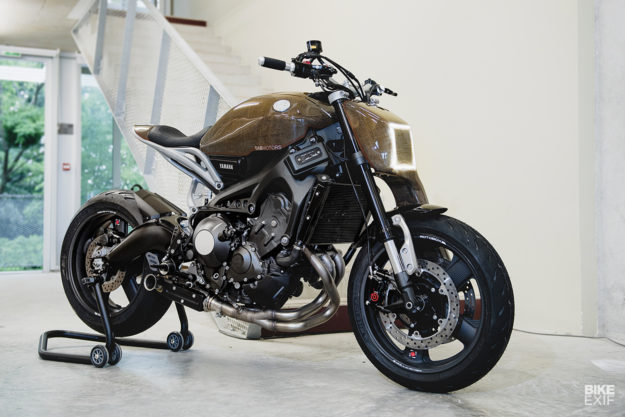
The new wave custom scene was originally built on a love for the old school. But these days, we’re seeing more ‘neo’ and less retro, and some very cutting-edge production tech.
A lot of builders now prefer computers to sketch pads, and 3D printers over English wheels. And that’s fine by us—if the results are as good as this radical Yamaha XSR900. Built by Dab Motors of France, the metal parts have been created using ‘laser beam melting’ and the bodywork is crafted from flax fibers.
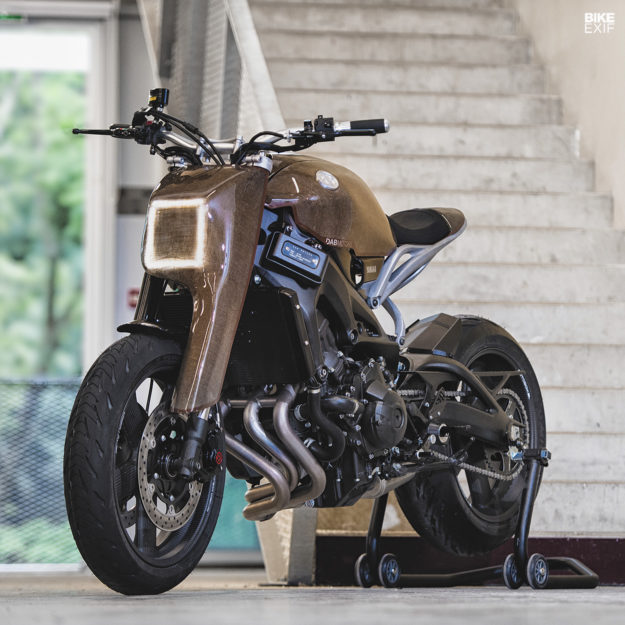
‘ALTER’ is the latest in a long line of impressive Yamaha Yard Built commissions, and it’s an absolute jaw-dropper. It’s also been put together using unusual techniques, some of which we’re still trying to wrap our heads around.
For Simon Dabadie—the man behind Dab Motors—modern is where it’s at. He’s based in Biarritz, and deliberately eschews traditional processes to create what he calls “a new kind of custom motorcycle.”

Simon’s background is a mix of engineering, design and motorcycles. He’s familiar with 3D design and printing, and has worked for both Roland Sands Design and Deus Ex Machina.
Now he builds customs in “a totally antagonistic way to the old school spirit, integrating new technologies into the creative process.” And he has a growing network of talent that he ropes in for help.
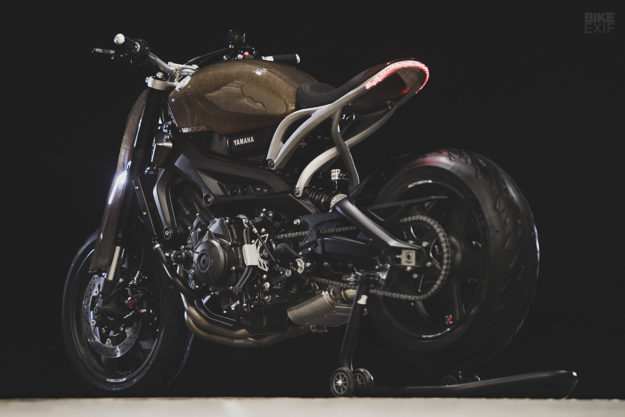
“The ALTER is our vision of the future of custom motorcycles,” he says. “During this project we wanted to show that we have to embrace the new technologies, to be more creative and to focus on our ideas.”
One of those new technologies is metallic additive manufacturing—a specialty of Dab’s partner on the project, Poly-Shape. Through a process called laser beam melting, their machines effectively 3D print objects out of anything from steel to titanium.
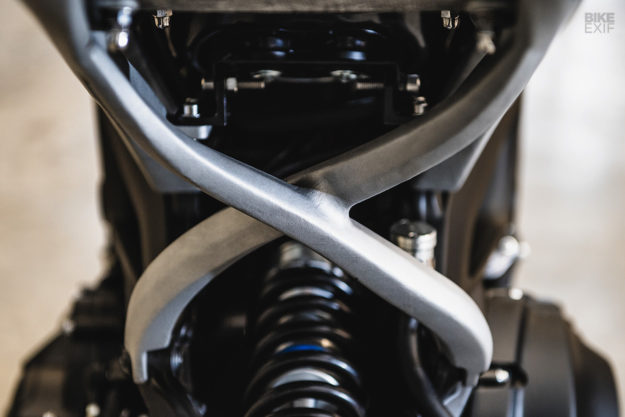
In this case, Poly-Shape manufactured a new subframe, top triple tree, handlebar risers and headlight bracket, all from aluminum, to Dab’s design. Simon first 3D scanned the entire motorcycle, and then carefully designed each part to fit perfectly, so as to avoid any nasty surprises down the road.
The subframe’s particularly interesting—it bolts straight onto the XSR900, with a distinct shape that would have been near impossible to execute by hand. The new parts are also 50 percent lighter than before.
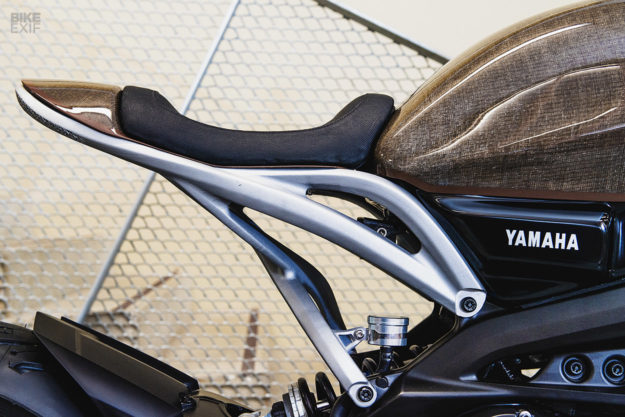
The XSR’s bodywork was also conceived digitally, but it took a little more effort to bring it to life. First, Dab headed over to the Basque tech company Compositadour Research, where they used a KUKA robot to machine a set of molds.
Back in the workshop, Simon shaped up the final parts using ampliTex flax fibers. “The flax fiber is completely natural, which is not the case for carbon and fiber glass,” explains Simon. “It has good mechanical properties, it’s translucent and it has a beautiful aesthetic.”
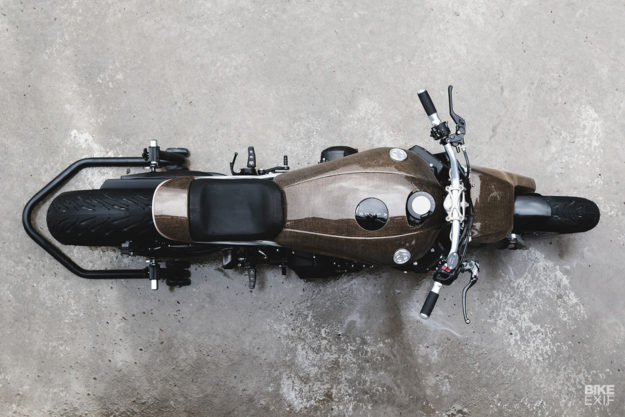
The shaping process is similar to working with fiberglass—by laying fiber sheets over molds and applying epoxy resin. Simon used this process to create a new fairing, asymmetrical fork shroud, tank cover and tail section.
A full LED headlight system shines through the front fairing, thanks to the fiber’s natural translucency. In these photos, we only catch a glimpse of the daytime running light—but there’s a powerful projector in the center too, suitable for night riding.
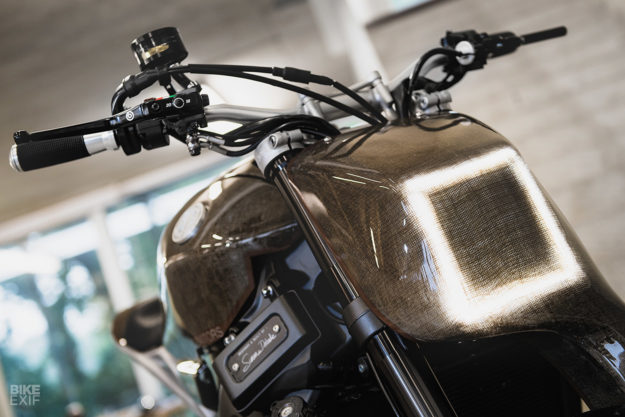
It’s all hooked up to an Arduino micro-controller, which communicates with an iPhone app via Bluetooth, giving Simon the ability to ‘tune’ every LED on the bike.
It’s an impressive, high-tech reworking of the XSR900, but it’s not all that’s going on here. Simon’s also thrown a bevy of go-faster bits at the Yamaha.
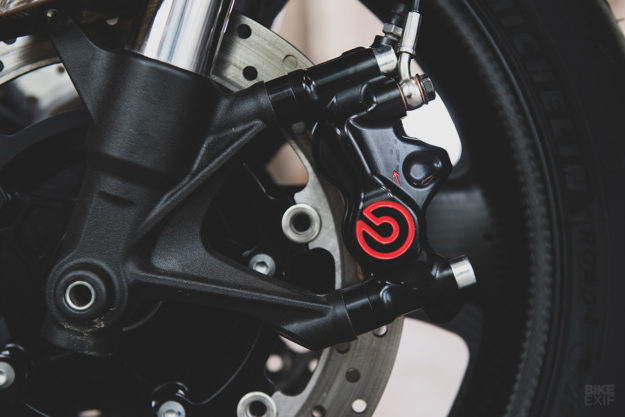
For starters, it’s sporting Öhlins suspension at both ends, along with a pair of ultra-desirable Rotobox RBX2 carbon wheels. Braking upgrades are courtesy of Brembo, and the tires are Michelin Road 5s.
The bars, mirrors, grips, brake reservoirs and gas cap are all Rizoma bits, and the rear sets are from Gilles Tooling. The stock speedo is still in play, but it’s been relocated to a cutout in the new tank cover. Simon also installed a DNA performance filter, and an IXIL SX1 exhaust.
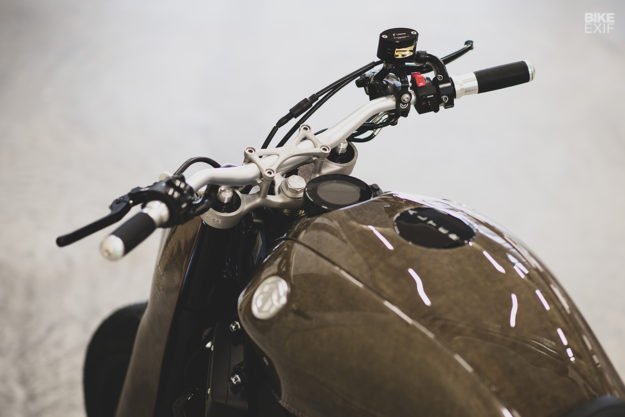
Every last detail’s been considered, right down to the seat upholstery. It’s been covered in Armalith—an abrasion resistant fabric that’s also used on Simon’s jeans and vest, custom made for him by Bolid’Ster.
Qwart Helmets supplied a one-off version of their Phoenix helmet to match the bike, and Velomacchi sent over their Speedway pack and gloves. (Like we said: every last detail.)
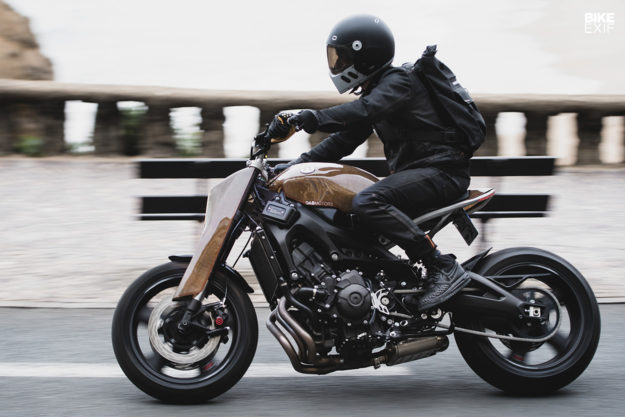
“The main message that I wanted to deliver with the ALTER is that, in a world driven by technology, we don’t have to be stuck in the old days with old ways of working,” says Simon.
“ALTER was born using new technologies, and is inspired by them. We want to stimulate people’s curiosity by using new kinds of materials, by being critical and by testing every idea that we have. It’s about not limiting yourself, and opening your mind to potentially revolutionary ways of doing things.”
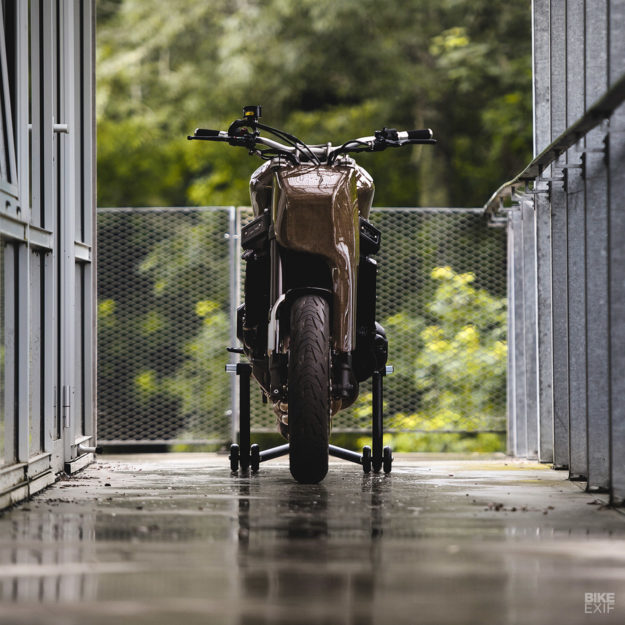
What say you?
Do you prefer the look and feel of hand-hammered metal—or are you curious to see where this leads?
Dab Motors | Facebook | Instagram | Yamaha Yard Built | A limited production run of this XSR900 is planned. Contact Simon Dabadie for details.